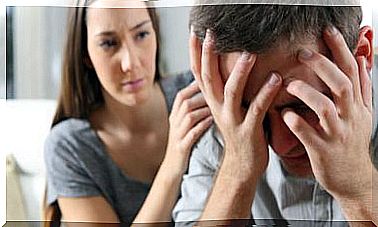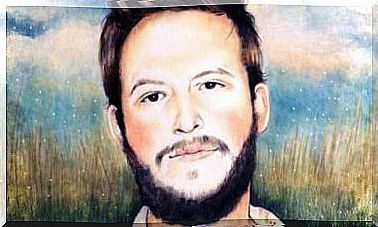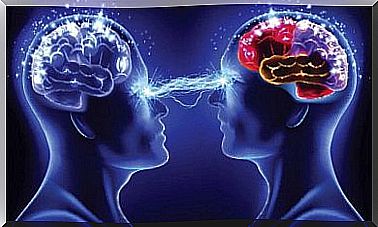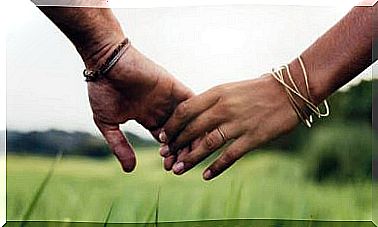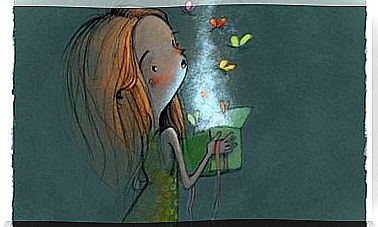What We Lose When Our Father Dies

The moment a parent dies is one of the most complex in a person’s life. It does not matter how old we are or how good or bad that relationship with the father has been. Even a distant or absent parent leaves a deep void and a host of feelings and emotions that are difficult to deal with.
When our father dies we have to mentally reposition ourselves in the world. For a while, our place on the planet becomes a bit fuzzy. We also have to modify our self-perception. Without our father we are not the same as before.
Although the usual thing is that we have more attachment and closeness to our mother, the truth is that the father is a figure that is always on the horizon . Even when he’s not around, his presence shines through in the background. He is a guide and protector, even though he does not guide or protect. Our mind has located it in that role, even without realizing it.

When the father dies, the identity changes
We are some when we have a father and others when our father dies. It does not matter if we are 30, 40 or 50 years old at the time that event occurs. While our parents are alive, a part of us continues to live in childhood. We feel that our life is headed by another being.
At the moment of the father’s death, a small earthquake occurs in our identity. We are the ones who go on to lead the generations that follow us. This scares and creates a feeling of loneliness.
A process of construction of a new adult identity then begins. This is not done automatically and it is not without suffering. We must build a new perspective on who we are and our place in the lives of others. When the father dies it is as if we lost an anchor. For a while we will be adrift.
Nostalgia for what never was
We will never have another parent. This is an absolutely irreparable loss. Whether we had a good relationship with him or not, we are going to feel nostalgic for what never happened or what never was. Something within us resists renouncing ideals, accepting the impossible.
If our father was close and loving, let’s look at everything he gave us in perspective. Your sacrifices and efforts to make us happy. Then we may think that we do not adequately reciprocate those generous gifts. That we needed to give him more love, more attention or more happiness.
If the relationship with the father was not good, things get a little more difficult. The usual thing is that the fractures and break points in that relationship begin to weigh more. Now there is no longer the opportunity to shorten those distances or simply to say yes, that despite everything, we love him.
Something similar happens in the case of absent parents. To that lived and suffered absence, surely for a long time, the forcefulness of the total absence is now added. It’s like being forced to close a cycle that was never really opened.
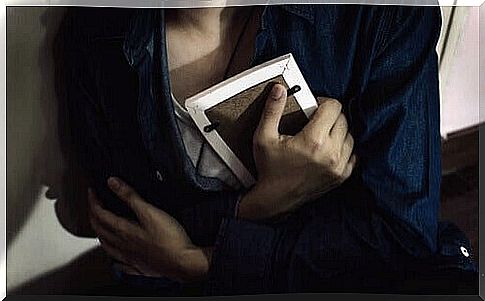
The imperative to move forward
No matter what the circumstances are, if our father dies, pain will probably appear. We will also change in a positive way sometimes. Without this normative figure present, it is possible that aspects of our personality or realities that were inhibited by its presence come to the fore.
Anyway, this loss will surely hurt intensely for a long time. Over the months and years it will become more tolerable. The most advisable thing is to understand that the pure and simple suffering before the death of the father is a perfectly normal phase. We may be 50 years old, but it’s still going to hurt us, it’s going to scare us.
Psychologist Jeanne Safer recommends taking time to reflect on the legacy our father left us. And basically doing it around five questions: what did I get from my father? What do I want to keep from it? What of this do I want to rule out? What am I sorry I did not receive? What would I have wanted to give and did not give?
All of this makes it possible to identify where the fractures and voids are. This, in turn, helps generate strategies to handle these gaps and bankruptcies. When our father dies, new streaks of growth also open up. The smart thing to do is take advantage of them.


